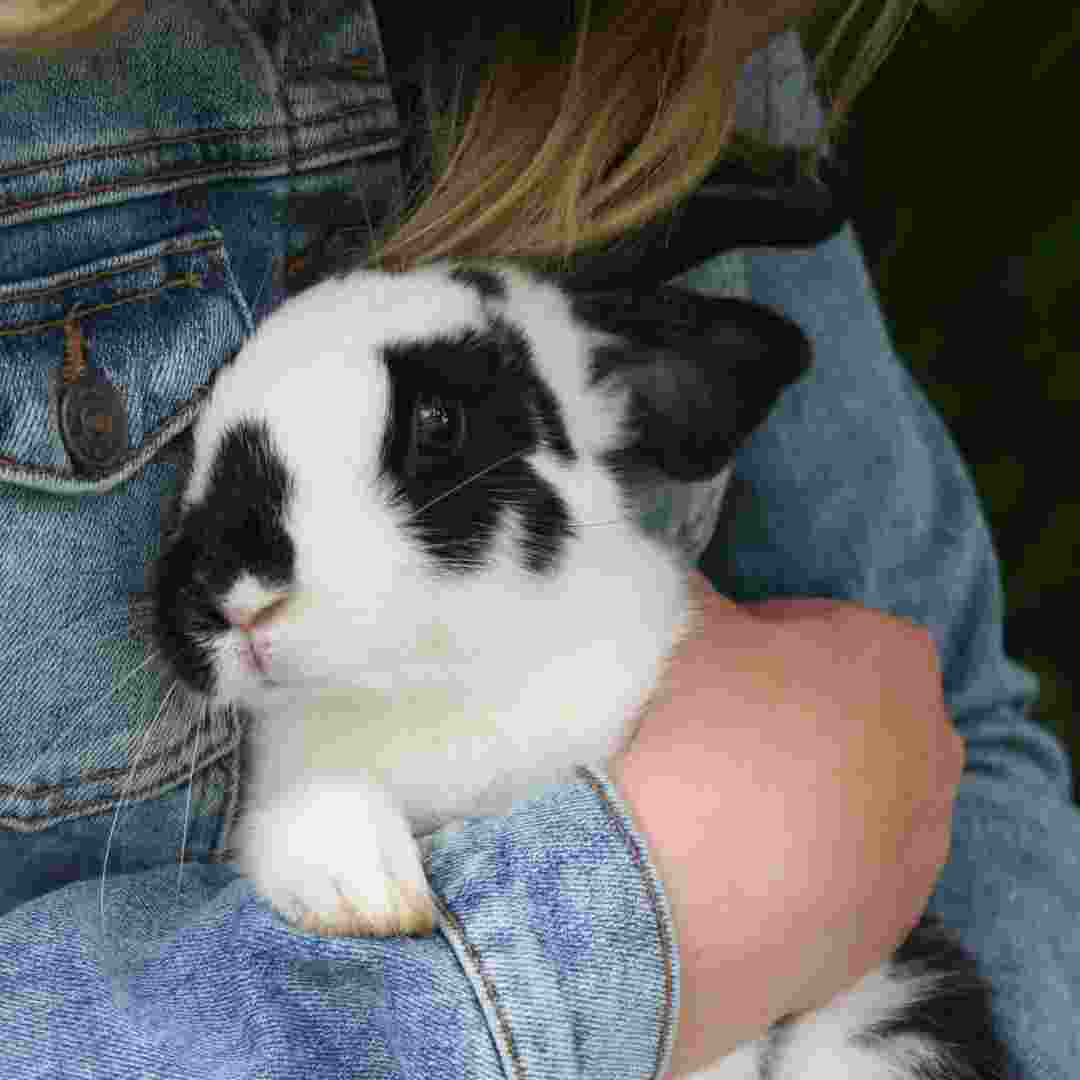Contents Table
Introduction
Bunny Fear's Evolutionary Benefits
Instinct in Bunny Fear
Humans Can Scare Bunnies
Impact of Predators on Bunny Fear
Bunnies' Fear Reduction
Q&A
Conclusion
Introduction
Bunnies, one of the world's most popular creatures, are shy and easily terrified. Bunnies are prey, thus predators chase them in the wild. Therefore, they have evolved to be incredibly vigilant and sensitive to their environment so they can immediately identify danger and leave. Their inherent fear response helps them survive in the wild, but it can make them appear timid and fearful in captivity.
Bunny Fear's Evolutionary Benefits
Bunnies evolved fear to live in the wild. An instinctual response to fear helps them evade predators and other risks. Bunnies' survival instinct—fear—has helped them evolve.
Bunnies recognise and respond to threats through fear. Bunnies freeze, hide, or run away when threatened. This helps them evade predators and other environmental hazards. Fear helps rabbits recall dangerous circumstances and anticipate future hazards. It keeps them secure and alive in the wild.
Fear helps rabbits be attentive and observant. Scared bunnies are more aware of their surroundings. This helps them spot threats and act fast.
Fear also keeps rabbits together. Scared bunnies seek communal safety. This keeps them safe and increases their survival chances.
Finally, fear helps bunnies detect and adapt to environmental changes. Scared bunnies explore more. This helps them find food, shelter, and other necessities.
Finally, rabbits need fear to survive in the wild. It helps them recognise and respond to predators, stay alert, stay in groups, and adapt to environmental changes. Fear helps bunnies evolve and live in the wild.
Instinct in Bunny Fear
As a normal response to danger, instinct drives rabbit fear. Bunnies are prey and flee or hide when scared. Their survival system helps them evade predators and other risks.
When introduced to a new area, bunnies may freeze, flee away, or hide. This is because the bunny is unfamiliar with the scenario and how to react. Escape or hiding is its instinct to protect itself.
Bunnies instinctively fear loud noises and quick movements. These can indicate danger, and bunnies retreat or hide to defend themselves.
Bunnies also dread unfamiliar people and animals. They flee or hide to defend themselves since they don't know how to react to these novel stimuli.
Bunny fear is mostly instinctual. Bunnies instinctively escape or hide from danger. This natural response helps them survive in the wild and shows in their behaviour in unfamiliar situations.
Humans Can Scare Bunnies
Human interaction can greatly affect bunny fear. Bunnies are cautious and can be spooked by sudden or strange movements. To keep bunnies safe and healthy, people must be attentive of their interactions.
Humans can heighten bunny fear with quick movements or loud noises. Loud noises and quick motions might scare and run away bunnies. Knowing this and approaching bunnies gently and quietly is crucial.
Without enough space, humans can enhance rabbit fear. Bunnies are terrified and may try to escape if they feel surrounded or cornered. Bunnies need space to move and feel protected.
Human engagement can enhance bunny fear by not stimulating them enough. Healthy and happy bunnies need to explore and interact with their environment. Without adequate stimulus, kids may get bored and terrified. Bunnies need many of toys and activities to stay entertained.
By watching how humans treat bunnies, you may minimise their fear and keep them secure. To keep them happy and healthy, walk slowly, give them room, and stimulate them.
Impact of Predators on Bunny Fear
Bunnies fear predators because they threaten their survival. Foxes, coyotes, and hawks hunt on bunnies because they are small and fragile. Bunnies fear predators because of this.
To avoid discovery, bunnies often stop when they feel a predator. Bunnies employ the “startle response” to defend themselves from predators. If the predator is still there, the bunny may flee. The “escape response” is another way bunnies defend themselves against predators.
Bunnies may also become more cautious and attentive due to predator fear. They may avoid predator-prone regions like fields and woods. They may also become more alert of their surroundings, checking for danger.
Bunnies' health might also suffer from predator anxiety. Constant worry and stress can raise cortisol levels. Bunnies' immune systems can decrease, making them more prone to sickness and infection.
In conclusion, bunnies dread predators. This dread might cause stress and harm their health. Protecting bunnies from predators requires awareness and action.
Bunnies' Fear Reduction
Bunnies fear danger like everyone else. Bunnies, being prey animals, are naturally afraid of predators, making fear management difficult. Bunnies can overcome their fright, thankfully.
Create a safe environment first. Bunnies need a safe enclosure from predators. The enclosure should be large enough for the bunny to explore and devoid of hazards. The enclosure should also be tidy and free of loud noises and rapid movements that could shock the rabbit.
Second, enrich plentifully. Bunnies need mental stimulation to keep healthy and happy, and enrichment can help them overcome fear. Give the bunny toys, tunnels, and other items to investigate. Give cookies and other rewards to bunnies that try new things.
Step three is positive reinforcement. Reward daring bunnies with goodies and praise for exploring new things. This will help the rabbit associate positive experiences with the new setting and feel more comfortable.
Finally, patience is key. Be patient—overcoming fear takes time. The bunny should explore when ready, not if forced. Slow down and let the bunny explore.
Follow these strategies to help bunnies overcome fear. With patience and empathy, bunnies can feel safe in their environment.

Q&A
1. Why are bunnies scared?
As shy animals, bunnies have evolved to be attentive and sensitive to hazards. Large ears help them detect danger, and their eyes placed on the sides of their head for a panoramic view. Their keen sense of smell helps them spot predators.
2. Why do rabbits flee danger?
Since bunnies are prey, they escape when threatened. Their inherent instinct helps them survive in the wild. They flee predators and may freeze if attacked.
3. How can my bunny feel less scared?
Safeguarding your rabbit can reduce its fear. Keep your rabbit busy with toys, hiding spots, and enrichment activities. Also, handle your rabbit gently and speak softly.
4. Are there any signs my rabbit is scared?
Yes, there are various indicators of rabbit fear. Trembling, concealing, and avoiding people are examples. If your bunny exhibits any of these behaviours, help them feel safer.
5. Do bunnies usually get scared?
Fearful rabbits are normal. They are attentive and sensitive to hazards as prey animals. Provide a safe and secure setting to reduce their fear.
Conclusion
Bunnies are cautious and fear predators to survive. As prey, they are readily startled by loud noises and quick movements. Bunnies' keen hearing and scent help them spot danger. Their big ears let them spot predators from afar. All of these reasons make bunnies afraid.
